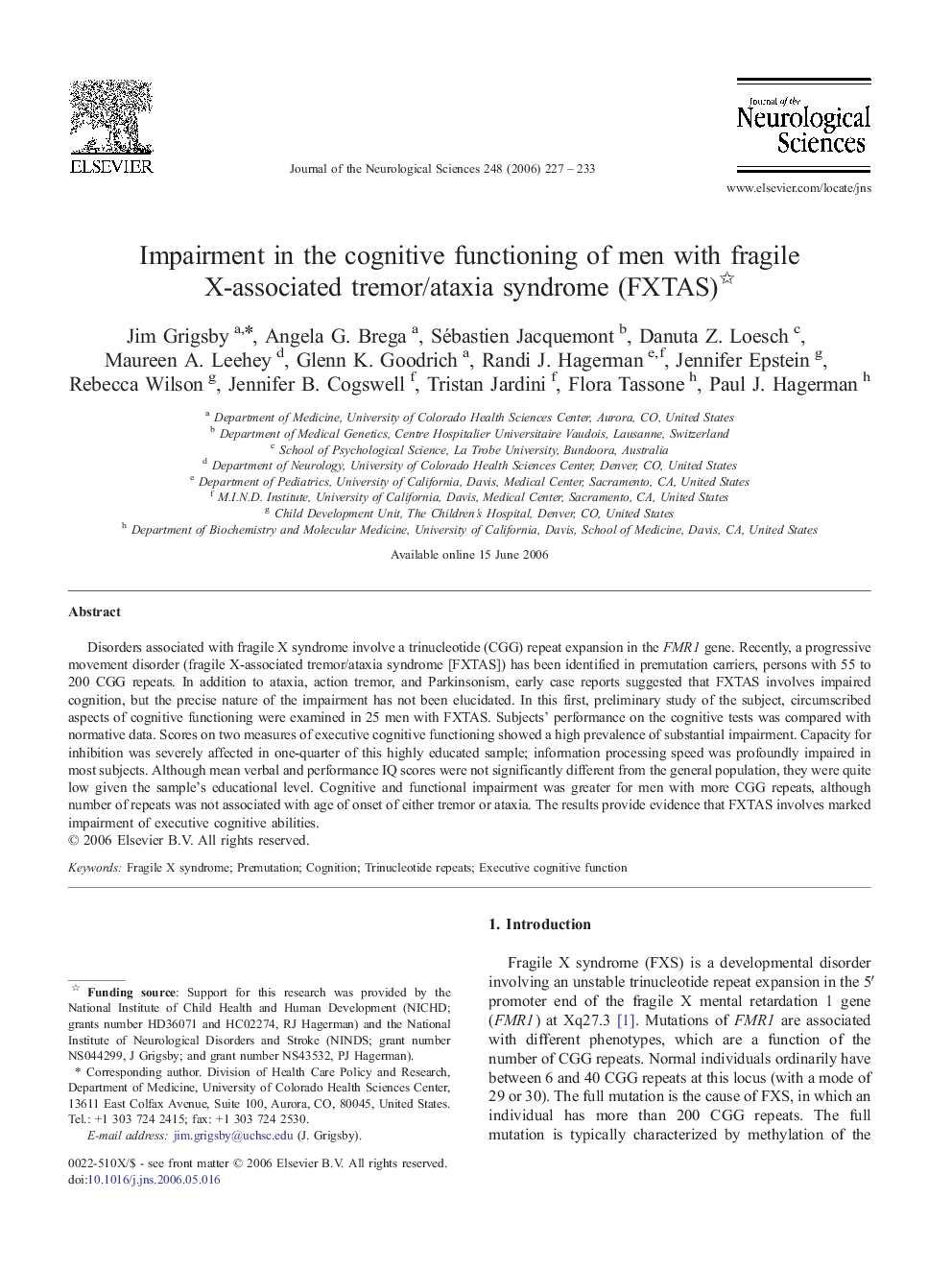| Article ID | Journal | Published Year | Pages | File Type |
|---|---|---|---|---|
| 1916716 | Journal of the Neurological Sciences | 2006 | 7 Pages |
Disorders associated with fragile X syndrome involve a trinucleotide (CGG) repeat expansion in the FMR1 gene. Recently, a progressive movement disorder (fragile X-associated tremor/ataxia syndrome [FXTAS]) has been identified in premutation carriers, persons with 55 to 200 CGG repeats. In addition to ataxia, action tremor, and Parkinsonism, early case reports suggested that FXTAS involves impaired cognition, but the precise nature of the impairment has not been elucidated. In this first, preliminary study of the subject, circumscribed aspects of cognitive functioning were examined in 25 men with FXTAS. Subjects' performance on the cognitive tests was compared with normative data. Scores on two measures of executive cognitive functioning showed a high prevalence of substantial impairment. Capacity for inhibition was severely affected in one-quarter of this highly educated sample; information processing speed was profoundly impaired in most subjects. Although mean verbal and performance IQ scores were not significantly different from the general population, they were quite low given the sample's educational level. Cognitive and functional impairment was greater for men with more CGG repeats, although number of repeats was not associated with age of onset of either tremor or ataxia. The results provide evidence that FXTAS involves marked impairment of executive cognitive abilities.
